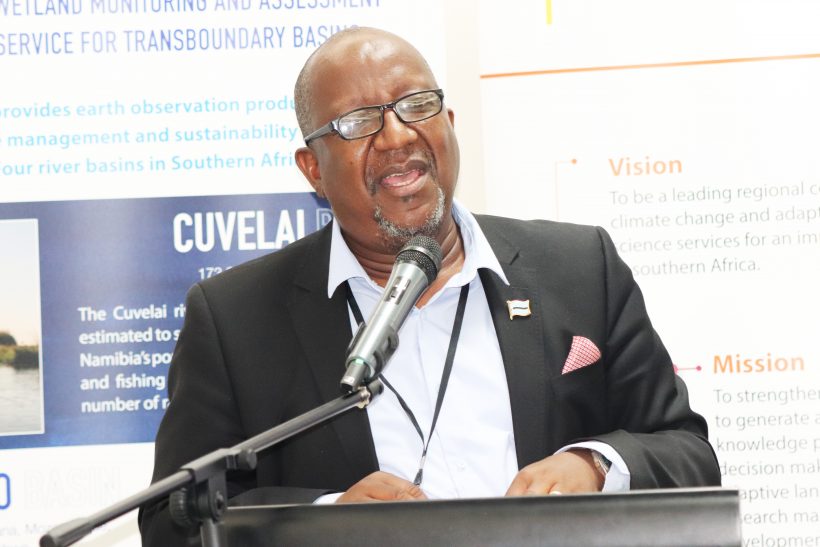“We have seen rivers change. We have seen less rainfall. We have seen less of everything but more heat.”
With those opening words at SASSCAL’s official hand over of Automatic Weather Stations (AWS) to Botswana’s Department of Meteorological Services (DMS), Mr. Balisi Gopolang, SASSCAL Governing Board Member painted a picture of a land transformed, not by choice, but by the deepening impacts of climate change. His words were not just statistics or projections; they were lived experience.
As a boy, he remembers walking with his father, crossing a stream not far from where he stood to deliver his remarks. Back then, the stream ran reliably, spilling over every few years, a sign of abundance, of rhythm, of life. Today, that stream is dry just a memory on cracked earth.
“If you go now,” he said, “I challenge you to visit the southwestern part of Otjona in Namibia. What used to be a water-rich region is now just a dry pan. People settled there because of the salt, the water, the beauty. But now, there’s nothing. Just heat, dust, and dry wind.”
And yet, he speaks not with despair, but with a sense of duty a living witness to change, and a steward of solutions.
He reflected on how the world responded when the signs became too stark to ignore. In the midst of international negotiations in Bali, at a Conference of the Parties Germany listened. They brought together leaders, scientists, and policymakers under one roof and planted the seed of what would become SASSCAL the Southern African Science Service Centre for Climate Change and Adaptive Land Management.
“It was not easy,” he admitted. “Governments change. Priorities shift. But the idea remained, and the mission stayed alive because climate change does not pause for politics.”
He acknowledged the German government’s early and unwavering support, saying, “Please pass this message to your German leadership we are forever grateful.”
But Mr. Gopolang’s remarks were more than a thank-you. They were a challenge.
He spoke about the importance of data credible, quality data in driving real climate solutions. “It doesn’t matter if you use the most powerful model in the world,” he said. “If you put in bad data, you get bad results. Garbage in, garbage out.”
He called on all SASSCAL partners to invest not just in infrastructure, but in science, in systems, and in sustainable cooperation because only together can we adapt to the challenges ahead.
As he closed, he reminded us that leaders come and go. Ministers change. Directors retire. But the rivers, the rains, the land and the challenges they face will remain. And so must we.
“I am part of that history,” he said. “I’ve seen it happen. And I will continue to fight so that future generations don’t just inherit our problems but the tools to solve them.”




Leave a Reply